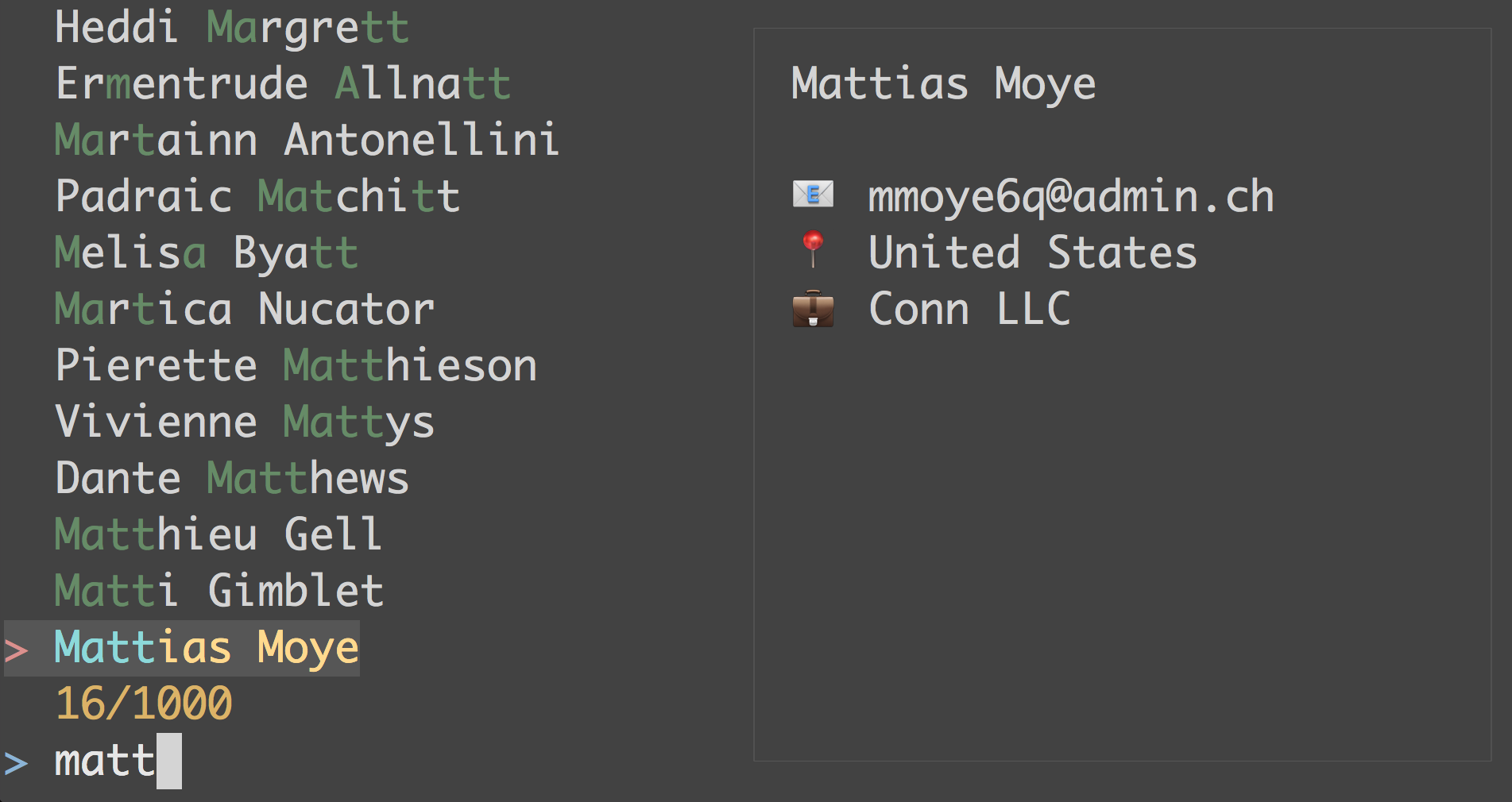go-fuzzyfinder
go-fuzzyfinder is a Go library that provides fuzzy-finding with an fzf-like terminal user interface.
Installation
$ go get github.com/ktr0731/go-fuzzyfinderUsage
go-fuzzyfinder provides two functions, Find and FindMulti.
FindMulti can select multiple lines. It is similar to fzf -m.
This is an example of FindMulti.
type Track struct {
Name string
AlbumName string
Artist string
}
var tracks = []Track{
{"foo", "album1", "artist1"},
{"bar", "album1", "artist1"},
{"foo", "album2", "artist1"},
{"baz", "album2", "artist2"},
{"baz", "album3", "artist2"},
}
func main() {
idx, err := fuzzyfinder.FindMulti(
tracks,
func(i int) string {
return tracks[i].Name
},
fuzzyfinder.WithPreviewWindow(func(i, w, h int) string {
if i == -1 {
return ""
}
return fmt.Sprintf("Track: %s (%s)\nAlbum: %s",
tracks[i].Name,
tracks[i].Artist,
tracks[i].AlbumName)
}))
if err != nil {
log.Fatal(err)
}
fmt.Printf("selected: %v\n", idx)
}The execution result prints selected item's indexes.
Motivation
Fuzzy-finder command-line tools such that fzf, fzy, or skim are very powerful to find out specified lines interactively. However, there are limits to deal with fuzzy-finder's features in several cases.
First, it is hard to distinguish between two or more entities that have the same text. In the example of ktr0731/itunes-cli, it is possible to conflict tracks such that same track names, but different artists. To avoid such conflicts, we have to display the artist names with each track name. It seems like the problem has been solved, but it still has the problem. It is possible to conflict in case of same track names, same artists, but other albums, which each track belongs to. This problem is difficult to solve because pipes and filters are row-based mechanisms, there are no ways to hold references that point list entities.
The second issue occurs in the case of incorporating a fuzzy-finder as one of the main features in a command-line tool such that enhancd or itunes-cli.
Usually, these tools require that it has been installed one fuzzy-finder as a precondition.
In addition, to deal with the fuzzy-finder, an environment variable configuration such that export TOOL_NAME_FINDER=fzf is required.
It is a bother and complicated.
go-fuzzyfinder resolves above issues.
Dealing with the first issue, go-fuzzyfinder provides the preview-window feature (See an example in Usage).
Also, by using go-fuzzyfinder, built tools don't require any fuzzy-finders.
